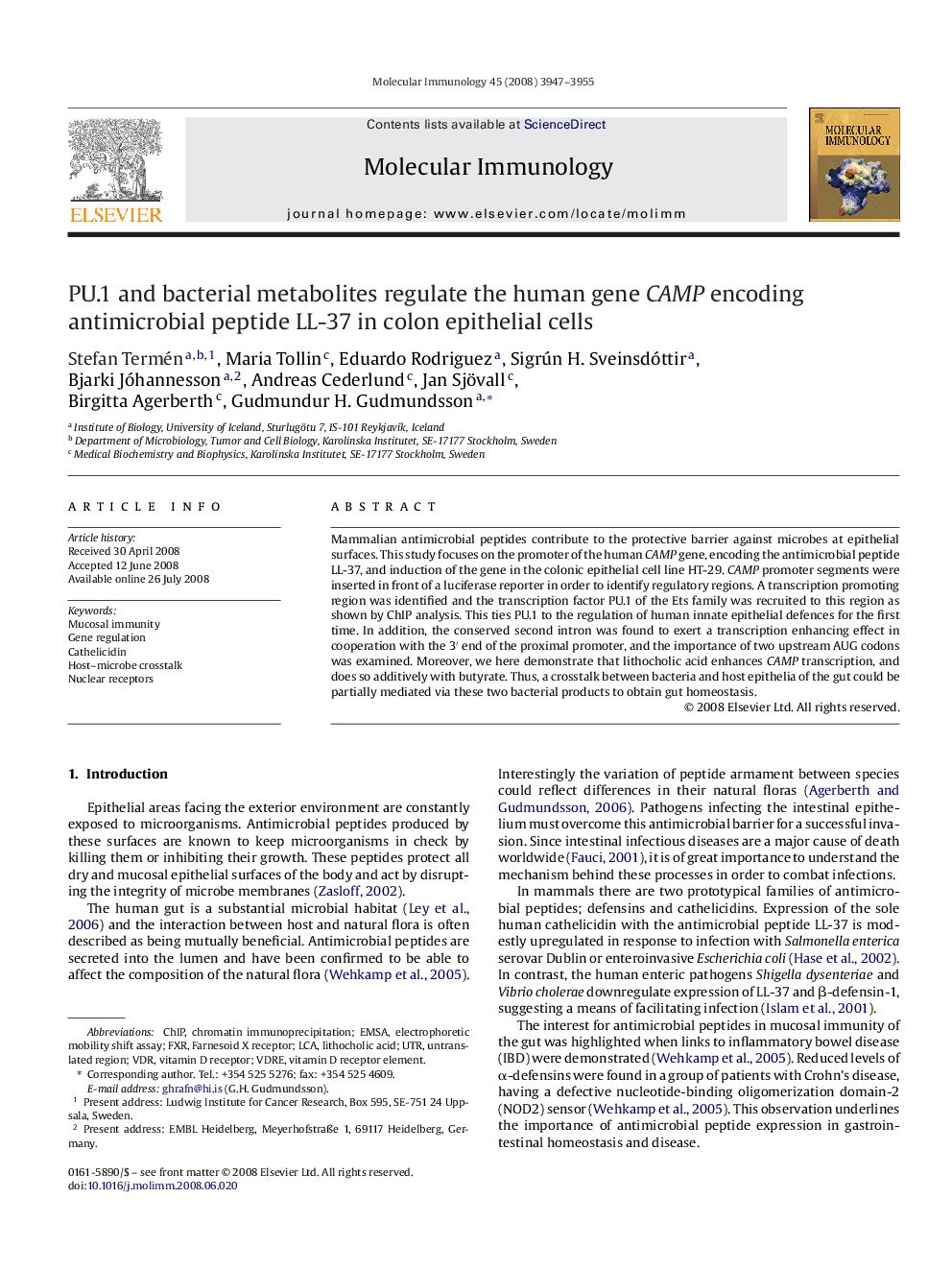| Article ID | Journal | Published Year | Pages | File Type |
|---|---|---|---|---|
| 2832081 | Molecular Immunology | 2008 | 9 Pages |
Mammalian antimicrobial peptides contribute to the protective barrier against microbes at epithelial surfaces. This study focuses on the promoter of the human CAMP gene, encoding the antimicrobial peptide LL-37, and induction of the gene in the colonic epithelial cell line HT-29. CAMP promoter segments were inserted in front of a luciferase reporter in order to identify regulatory regions. A transcription promoting region was identified and the transcription factor PU.1 of the Ets family was recruited to this region as shown by ChIP analysis. This ties PU.1 to the regulation of human innate epithelial defences for the first time. In addition, the conserved second intron was found to exert a transcription enhancing effect in cooperation with the 3′ end of the proximal promoter, and the importance of two upstream AUG codons was examined. Moreover, we here demonstrate that lithocholic acid enhances CAMP transcription, and does so additively with butyrate. Thus, a crosstalk between bacteria and host epithelia of the gut could be partially mediated via these two bacterial products to obtain gut homeostasis.
